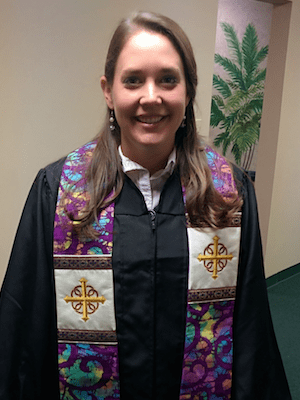No matter how many seminary classes you had discussing and debating ethical dilemmas that pastors have encountered in their parishes, there is no way to prepare completely for what you will face as you minister in our current context.
My hope is that this monthly column, “From the Pews,” will provide insights and challenges for ministers, lay leaders and churches.
In the wake of the #metoo movement, more men and women are speaking out and speaking up about the hidden lives of church pastors.
The reach of the sexual misconduct of pastors is disturbing as in some cases it includes prostitution.
Specifically, Bill Hybels of Willow Creek Community Church has resigned his position as senior pastor and founding pastor of the megachurch.
He denies the allegations of sexual misconduct with women in his church as well as female employees.
Pastors are supposed to be the voice of moral reason and ethics in our society. When pastors’ secret lives are exposed, it causes a spiritual dissonance within faith communities and indeed within our culture.
To be certain, these stories that are being released aren’t new and perhaps this is the most difficult aspect to process.
These pastors would engage in sexual misconduct and then rise on Sunday mornings to expound on the teachings of the Bible. This kind of double life is hard to comprehend.
So hard to comprehend that one congregation applauded and gave a standing ovation in response to the pastor’s admission of sexual misconduct years before when serving as a youth minister.
When we get to the point as a society that we are applauding abusers who have ministry positions, it’s time to take a hard look at how we got to this point.
With the rise of the megachurch movement since the 1950s, congregations of more than 2,000 people began to call one person – most often a man – their pastor.
This pastor could not attend to 2,000 personally. As a result, highly structured systems developed limiting access to the senior pastor, thus elevating the senior pastor’s status. This status is not dissimilar to famous athletes and movie stars.
Senior pastors aren’t the only ones who enjoy this status. Worship leaders also become elevated not only in the physical location of an elevated stage, but also in status in the community.
When ministers and worship leaders become celebrities, church services often begin to encourage entertainment rather than devotion.
When faith leaders are elevated to celebrity status, maintaining and preserving power seep into questions of morality and ethics.
Again and again, we have seen instances of the elevated celebrity-status pastors being accused of sexual misconduct.
Perhaps our ministers shouldn’t be elevated to celebrity status. Perhaps our worship shouldn’t be entertainment because when our focus in worship is on whether we are entertained, we make our faith about us and not about serving God.
Merianna Harrelson is pastor of New Hope Christian Fellowship in West Columbia, South Carolina, editor-in-chief of Harrelson Press Publishing, and an EthicsDaily.com / Baptist Center for Ethics board member.
Editor’s note: This is the first in an ongoing, monthly column series, “From the Pews,” in which Harrelson will discuss local church ministry trends and challenges. Her writings also appear on her website, and you can follow her on Twitter @MeriannaNeely.
Pastor of Garden of Grace United Church of Christ in Columbia, South Carolina, and editor-in-chief of Harrelson Press Publishing.

